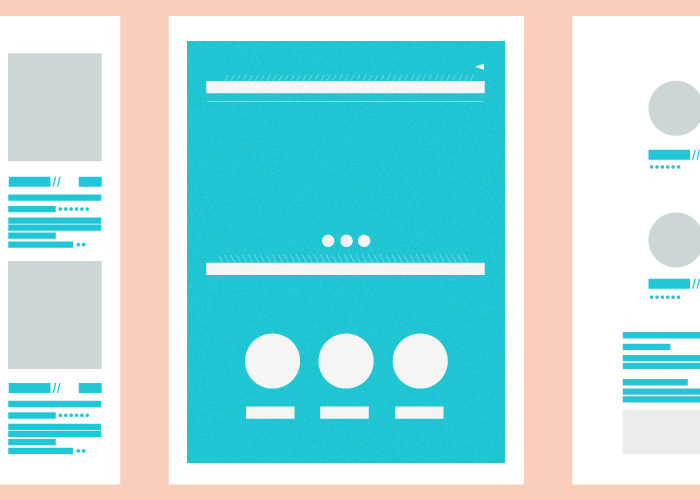Tax Savings Tips for Small Business Owners
Tax season can be a stressful time of year for small business owners. Instead of taking time to prepare throughout the year, many wait until the last minute which only creates unwanted, added stress come tax season. Practicing the business tax savings tips outlined below will reduce your stress and most importantly, will save you valuable time and money.
Tip #1: Keep your business and personal finances separate.
As a small business owner, you never want to commingle your business and personal funds. These should always be treated as two completely separate entities. Having a separate bank account and credit card for your business will make things a lot smoother come tax time. You need to be able to produce documents that support legitimate business expenses should you ever be audited by the IRS.
Tip #2: Use software like TurboTax to prepare and file your taxes.
You can save your business money by preparing your own business taxes. Most tax software programs like TurboTax Home & Business or TurboTax Self-Employed walk you through the past 12 months of finances step-by-step. This software helps maximize your business deductions (i.e. vehicles, home office, supplies, etc.). TurboTax offers free online or telephone support in case the step-by-step process isn’t as explanatory as you had anticipated. Perhaps best of all, they guarantee 100% accurate calculations or they will pay any IRS penalties for you.
If you organize and prepare well throughout the year, handling your own taxes should be relatively easy. It may take you some time, but it will save you a good chunk of money in the end. It’s also just good practice as a business owner to understand how taxes work so you can be sure to document and collect all of the expenses offered to you as a business owner throughout the year.
Tip #3: Get organized and stay organized.
Implementing a few tasks to your daily, weekly or monthly routine will help alleviate some of that stress come tax time: Set up a filing system and keep all of your paperwork in one place. Use file folders to organize business expense receipts, bank statements, payments received, invoices, etc. for the past 12 months. I would suggest organizing into quarterly folders. This helps come time to pay your quarterly estimated tax payments to federal and state.
Set aside a few hours each month to simply go through these folders and make sure everything has been filed correctly and there isn’t anything missing that should be documented.
Tip #4: Use accounting software like Freshbooks to send invoicing, track revenue and expenses throughout the year.
Accounting is an essential part of running a business. Since 2011, we have been using the accounting software FreshBooks. This web-based application makes tedious accounting tasks easy, fast and secure. You can quickly generate financial reports to send to your CPA or tax professional. Accounting software will make things much smoother when it comes time to prepare and file your taxes. If you’re looking into using a similar feature, QuickBooks also offers a great accounting software program as well.
Business Tax Deductions to Claim
Small business ownership brings a unique set of tax advantages that you should be aware of. You can deduct a wide range of business-related expenses that you may not have realized. Some of these include: rent or home office expenses and the cost of equipment and supplies such as computers, cell phones, furniture, and utilities. In order to count as a deduction, these expenses must be both accepted in your trade and helpful to your business. Some expenses may fall into the categories of both personal and business, but you can still deduct the business portion. You’ll want to make sure you don’t miss out on any of these deductions:
Home office deduction
If you have a home office or even just inventory stored in your residence, you may be able to deduct expenses such as mortgage interest, insurance, and utilities as a portion of your expenses. This applies to both homeowners and renters. Learn more about whether or not you meet the requirements to take this deduction.
Business lunches
Take your customers out to lunch or order pizza for the office as a special treat for your employees. Meals that are business related can be deducted by 50%. A good rule of thumb to follow is to treat your business finances as if they were your personal funds.
Use independent contractors and not employees
Many business owners choose to hire independent contractors over hiring employees for their staffing needs. There are many benefits to using contractors including: savings in labor costs, reduced liability, and avoiding payroll taxes. Before making a switch, it’s critical to correctly determine whether to use independent contractors or employees. To understand more on this, visit the IRS to learn about tax implications of either scenario.
Take the Section 179 deduction
Section 179 deduction will allow you to recover all or part of the cost of certain qualifying property by deducting it in the year it was purchased. Equipment deductions include items such as office furniture, computers, equipment and any other large ticketed items. To learn more about qualifying and eligible property, visit the IRS Electing the Section 179 Deduction.
Countless resources online exist to help guide you through each of these business tax savings tips in detail. As a result, we advise you to consult with a tax advisor regarding your business taxes and filing properly. Taxes is one area you want to make sure you’re running as efficiently as possible.
Read our other article on Self-employment tax tips to tackle and pitfalls to avoid.
Tags: Accounting, Small Business, Tips
 close
close



